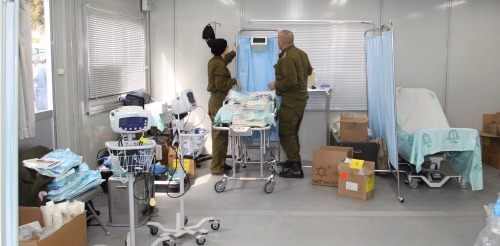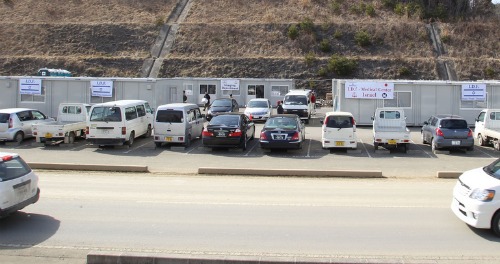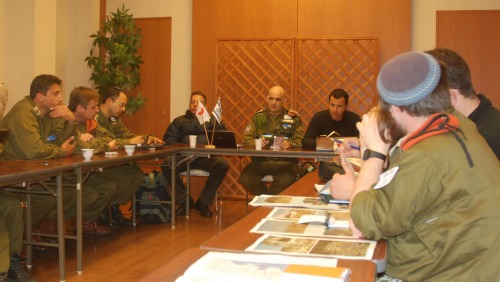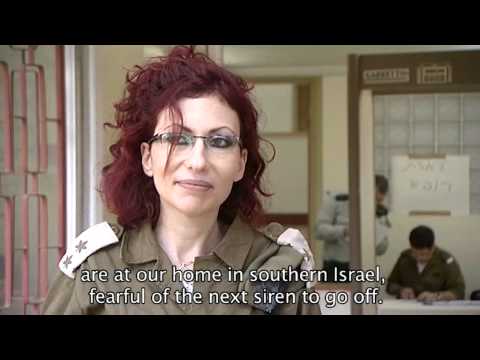A week ago they were treating bomb victims in Jerusalem, now Israeli medical staff are in Japan setting up a vital IDF field hospital to treat tsunami and earthquake casualties.
Last week, he was frantically treating victims of a terror bombing in Jerusalem. This week, Dr. Ofer Merin from the Shaare Zedek Medical Center in Jerusalem is in Japan, enlisted in humanitarian work to help the civilians there cope with medical emergencies following the massive earthquake of March 11.
Merin is one of a team of 50 Israelis who were dispatched on a humanitarian mission to help treat Japan’s casualties in one of the island nation’s worst-ever natural disasters.
Merin, the hospital’s deputy director general, left for Japan the evening of March 26 to serve on Israel’s Homefront Command team, part of the relief that the Israel Defense Forces (IDF) committed to provide after the devastating earthquake and tsunami hit Japan’s east coast. Israel has sent 18 tons of aid on a 14-hour plane ride and eight-hour bus trip.
As a cardiothoracic surgeon, Merin directs the hospital’s disaster preparedness program and its trauma unit. In Japan, he is heading surgical operations in the newly established IDF Field Hospital set up close to the disaster zone in Minami Sanriku in the Miyagi Prefecture. This site is 200 miles north of Tokyo in an area believed to be safe from nuclear radiation.

The field clinic has wards for pediatrics, surgery, maternity and gynecology, ophthalmology and intensive care, as well as a lab and a pharmacy. It is expected to operate for several weeks to alleviate some of the medical emergencies that the Japanese face in this region, which is an hour and a half from the closest hospital.
Experience in Haiti
In 2010 following the Haiti earthquake, Merin played a similar role running a unit of the field hospital there. “The events in Haiti, as well as our extensive experience dealing with mass casualty incidents, have given Israeli medical personnel an important advantage when it comes to setting up these field hospitals and providing comprehensive support and care for those who are desperately in need,” Merin said before leaving on the mission.
“We are prepared for a scene in Japan unlike anything we’ve ever seen before. But we are very confident that our resources and experience will allow us to offer a valuable contribution at this critical time.”

He left Jerusalem days after seeing the hospital through its own bout of tragedy. A terrorist bomb was planted near the Central Bus Station in Jerusalem, critically injuring one woman who later died, and severely injuring others.
Uri Schwarz, head of International Operations for Shaare Zedek, tells ISRAEL21c that due to its central location, the medical center receives many of the casualties after all-too-familiar terror attacks in Jerusalem.
“Because of our location, we get the highest number of injured when, God forbid, something goes wrong. Unfortunately, we received more than 20 injured from the last attack. For the good or for the bad, we have got a lot of experience with this and so we knew what to do. And unfortunately we’ve had the chance to prove ourselves.”
Applying Western medicine in Japan
An expert in trauma, Merin is the only Shaare Zedek staff member to travel to Japan in a group that includes 11 physicians, eight nurses and logistics personnel.
Merin writes in a dispatch: “The work will be totally different than Haiti. This village was hit by the tsunami. Half of the 17,000 people died or are missing. The rest turned into refugees, including others from the area.”

In addition to treating those injured in the disaster, the team will provide the general population with basic medical care. “A lot of issues arise concerning the difference in culture,” Merin writes. “The issue of Western physicians treating [the] Japanese population is not a trivial one. We will have to … be flexible to the different needs that we will encounter.”
Nuclear specialists will be monitoring radiation levels in the vicinity to ensure that the Israeli medical team and its support staff are not in harm’s way. “To be honest, I am not worried,” Merin concludes.













